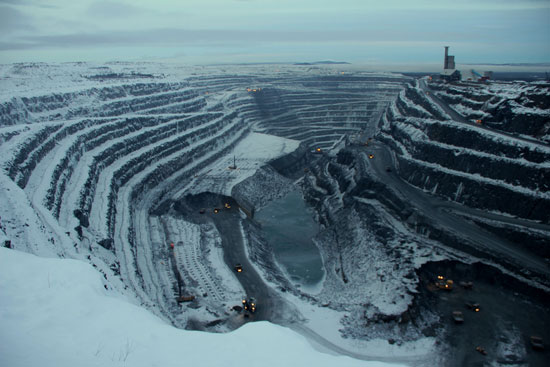In a piece from the November issue of e-flux journal entitled “Death Wall: Extinction, Entropy, Singularity,” Ana Teixeira Pinto argues that considerations of class and politics are glaringly absent from dominant discussions on the Anthropocene. Here’s an excerpt:
The time-honored answer to the question concerning existence and the human condition is that humanity, born into an indifferent world, always creates a vast array of aspirational endeavors with the aim of surpassing its base condition. Hegel presupposed the successive dissolution of aesthetic forms into the higher form of History, the absolute limit, which signals the moment when reason finds its completion and Mind and Matter are fused into a harmonizing whole. Once nature disappears everything becomes a human sign: that’s what we call the Anthropocene or the technosphere. But whereas Hegel believed that the labor of reason transformed nature into man’s manifest image (i.e. into culture), in the Anthropocene material culture appears as a negative totality–according to Dipesh Chakrabarty, a “negative universal” that “arises from a shared sense of a catastrophe.”
As Susan Buck-Morss noted while commenting on Walter Benjamin, “when temporality is conceived under the mythic sign of predetermination, people are convinced that the present course of events cannot be resisted.” The theories that have emerged in recent years—most notably speculative realism and object-oriented ontology—do not have an adequate grasp on the social. By limiting its scope of inquiry to questions of ontology and whether or not we can have access to the external world, these new strains of philosophical realism have ceased to think about social categories, electing as sole concerns questions of survival and extinction.
The diffuse world which emerges out of the conflation of globally consolidated financial vectors with the opacity of cyber-surveillance, underground economies, supranational cartels, corporate conglomerates, and clandestine insurgency is sublated into an evolutionary (or devolutionary) schema, whose future emerges simply as either ecological catastrophe or technological singularity. Whereas the former is, roughly put, the actualization of a Malthusian catastrophe on a planetary scale, for the latter carbon-based life will soon become altogether obsolete.
Image: The Aitik open pit mine, currently 430 meters deep, is located about 60 km north of the Arctic Circle in Northern Sweden. Via e-flux journal.
